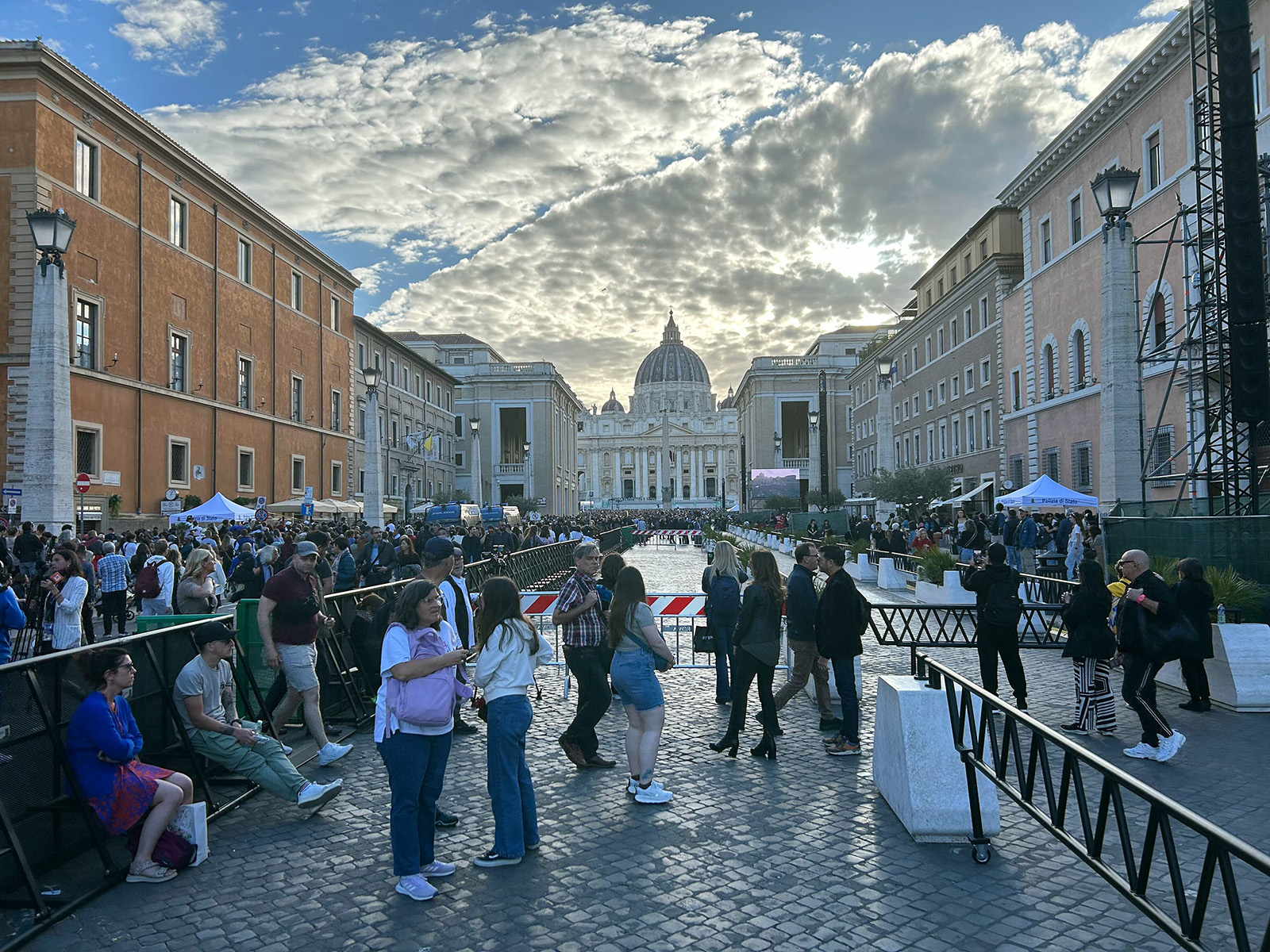
VATICAN CITY (AP) — Black smoke again billowed out of the Sistine Chapel on Thursday, the second day of the conclave to elect a successor to Pope Francis, indicating that no new pontiff has been chosen after the second or third ballots. There are still two more votes possible later in the day.
The 133 cardinals had resumed voting in the morning, after spending the night sequestered at the Vatican residences. On Wednesday evening, black smoke poured out of the Sistine Chapel chimney indicating no pope was elected on the first ballot of the conclave.
The cardinals have been sworn to secrecy in the centuries-old ritual to elect a new leader of the 1.4 billion-member Catholic Church. To become pope, a cardinal needs a two-thirds majority, or 89 votes. This conclave is the most geographically diverse conclave in the faith’s 2,000-year history.
Cardinal Giovanni Battista Re, the dean of the College of Cardinals, expressed hope that a new pope would be elected within hours, according to reports in major Italian newspapers. “I hope that when I return to Rome this evening, I’ll find the white smoke already rising,” he said, speaking from the city of Pompei on Thursday.
Re is 91 years old, which makes him too old to participate in the conclave of 133 cardinals who are electing the next pope and who all have to be under 80. However, he has been prominent and delivered a Mass on Wednesday before the cardinals began their conclave.
As the Mass ended he was caught on a hot mic saying to Cardinal Pietro Parolin, viewed as a favorite for the papacy: “auguri doppi” (“double best wishes”).
Italians discussed whether this was a customary gesture acknowledging Parolin’s role as the most senior cardinal present in the conclave, or if it might have been an informal endorsement of Parolin’s candidacy for the papacy.
Many faithful were hoping that the second day of the conclave would give the church and the world a new pope after a first vote produced dark smoke on Wednesday evening, sending a disappointed crowd to disperse in all directions in Rome.
Earlier, some of the people had started thinking that the long wait was the sign cardinals had reached a decision in a first vote, which would be unprecedented in the modern era. “They probably need more time,” said Costanza Ranaldi, a 63-year-old who travelled from Pescara in Italy’s Abruzzo region to be present at the historic moment.
Chiara Pironi, a 26-year-old who lives in Rome, said she would keep returning to St. Peter’s Square until a new pope is chosen. “I don’t want to miss that moment,” she said.
The voting might have taken longer than expected Wednesday evening, because of the large number of cardinals participating — 133 — and the linguistic diversity among them. The electors also hail from 70 countries, and not all speak or understand Italian fluently, which could have slowed down the proceedings if help with translation was needed. While in the past Latin was the universal language of the church, nowadays not all cardinals understand Latin or even Italian, the lingua franca of the Vatican.
Another unknown was the length of the meditation delivered by Cardinal Raniero Cantalamessa after the Sistine Chapel doors closed and the voting began. Cantalamessa is the retired preacher of the papal household.
Also, the vote might have had to be done twice, if for some reason the first ballot had to be invalidated. That occurred in 2013 when during one voting round, an extra empty ballot appeared.
